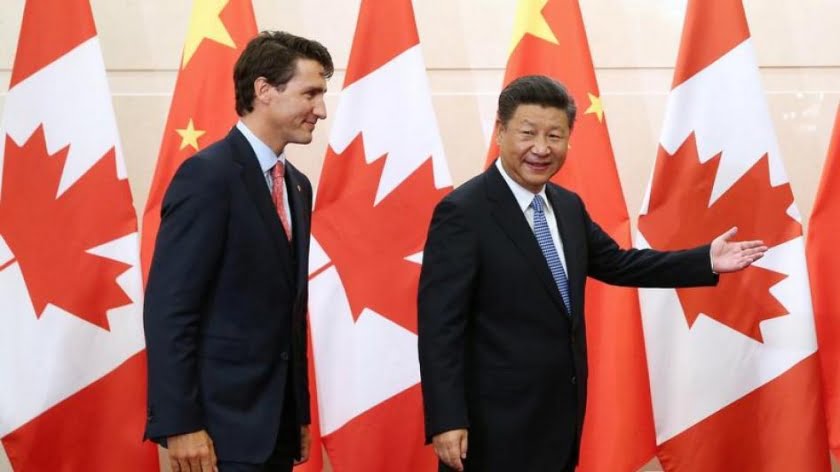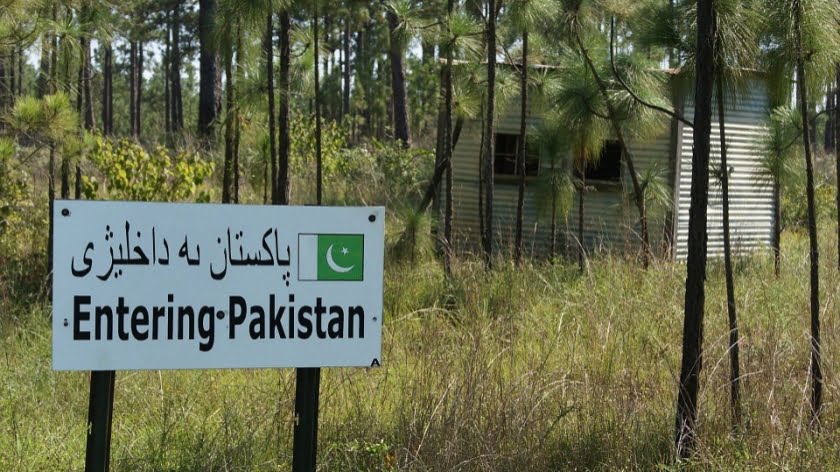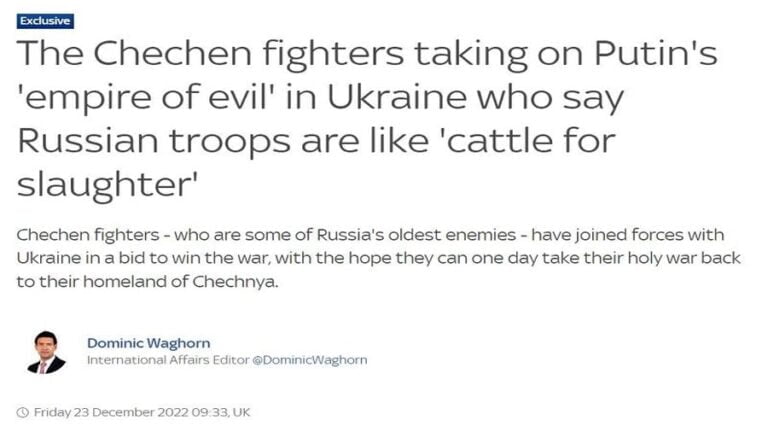What is Behind Canada’s Poisoned Relationship with China?
Watching Canada’s behaviour to China over the past several months has been like watching a train wreck in slow motion, and one could not be blamed for coming to the conclusion that this display of consistent diplomatic incompetence on the part of Canadian policy makers was intentional.
Believe it or not, but efforts were being made by Canada’s government to work with China not long ago. Years of planning had been put into consolidating a Canada-China Free Trade Agreement, and Canada signed up to the Asian Infrastructure Investment Bank in March 2017. So what went wrong, and how did it happen so quickly?
How we got here
In its first 2 years of power, Canada’s Liberal government could not help but speak down to China in efforts to pressure this global superpower to go more green, reform their governance system and “behave better” on corruption and human rights. This detached and condescending voice was not only alienating to China but demonstrated the height of hypocrisy as Canada has never been known to treat its indigenous people justly or be free of corrupt practices at the highest levels (see: SNC Lavalin). The failure of this elitist strategy only dawned on Trudeau and his controllers when the Prime Minister returned red faced from his Beijing trip in December 2017 having been given the clear message that the Free Trade Deal and dreams of a “special relationship” were finished.
When it became clear that the “Sino-Canadian Special Relationship” was not going to happen the way some technocrats managing Canada had previously wished, a new policy anti-Chinese belligerence became the chosen new doctrine. This led into the government’s intervention on China’s CCCE attempted purchase of the beleaguered construction giant AECON Inc. in May 2018 on claims that China had suddenly been categorized as a “national security threat”. Matters continued to devolve into to the illegal arrest of Huawei CFO Meng Wanzhou in December of last year and the green lighting of her extradition to face jail in the USA in March 2019.
The fact is that Canada’s Liberal party under the control of Chrystia Freeland (let’s not kid ourselves) has appeared to make the destruction of Canada’s participation in China’s Belt and Road Initiative a priority. Rather than move into the new paradigm of “win-win cooperation” offered by China, this northern monarchy has (at least for now) thrown its cards into the bankrupt WTO/NATO/Five Eyes-led system.
On May 22, Freeland was heard speaking through Trudeau’s mouth when he attacked China for its detainment of two Canadians accused of espionage saying “China is making stronger moves than it has before to try and get its own way on the world stage. Western countries and democracies around the world are pulling together to point out that this is not something we need to continue to allow”.
China’s Ambassador to Canada Responds
Following Trudeau’s remarks China’s Ambassador to Canada Lu Shaye said at a May 24 event: “the current China-Canada relations are facing serious difficulties and are situated at the rock bottom since the two countries have established diplomatic relations. It saddens us that the current China-Canada relations are at a ‘freezing point’ and face huge difficulties. The knots shall be untied by those who got them tied.”
Ambassador Lu had earlier made headlines by pointing out that the attack on Huawei and the arrest of Meng is politically motivated and reflects a racist agenda run by the London-led Five Eyes surveillance apparatus. In a January 2019 editorial Lu wrote: “these same people have conveniently ignored the PRISM Program, Equation Group, and Echelon—global spying networks operated by some countries that have been engaging in large-scale and organized cyber stealing, and spying and surveillance activities on foreign governments, enterprises, and individuals. These people also took a laissez-faire attitude toward a country that infringes on its citizens’ privacy rights through the Patriot Act. They shouted for a ban by the Five Eyes alliance countries…. on the use of Huawei equipment by these countries’ own enterprises”
The One voice of Reason snuffed out
There have been opportunities to turn this policy around of course. Canada’s Ambassador to China John McCallum tried to calm the tempest by making the obvious point to journalists in Toronto that Meng’s chances to avoid extradition were good due the fact that: 1) President Trump had gone on record stating he would be willing to intervene in her case if it helped US-China trade and 2) Canada never signed onto the Iran sanctions which involve her case.
McCallum was referring to President Trump’s earlier remarks saying: “If I think it’s good for what will be certainly the largest trade deal ever made, which is a very important thing — what’s good for national security — I would certainly intervene, if I thought it was necessary”
In response to McCallum’s efforts, he was promptly fired.
One other positive light calling for an indirect healing of Canada-China relations included a bi-partisan Arctic Policy team who recently called for a new arctic doctrine more in harmony with the practices of the Russia-China Polar Silk Road. However beyond this, not much can be heard on the matter from either of Canada’s other two parties with the Conservative Party’s Andrew Sheer (the contender in the upcoming October elections) taking an even more anti-Chinese line by saying “For years Trudeau has ignored the security threat the Chinese government poses to Canada and he’s allowed China to push Canada around. Its time for him to show some leadership and finally stand up to China”.
Sheer demanded that Canada punish China by “withholding promised funds to the AIIB” and lodge formal complaints to the World Trade Organization (which ironically cannot settle any trade disputes due to Trump’s blocking of nominations to the WTO Appellate Body.)
The Victims are the Canadian People
The only people suffering from this manufactured conflict are Canadians. Farmers across the prairies who had benefited by the US-China trade war have now watched their revenues collapse due to China’s cutting off of its Canadian soybean imports to the tune of $2.7 billion/year. Canada is the world leader of soybean production and China is one of the leading importers. Canadian tech companies will be hurt if the threatened ban on Huawei products occurs as many in the corridors of Ottawa are threatening and Canadians across both coasts are threatened as long decayed infrastructure continues to rot without any means of financing or construction which China has proven itself uniquely capable of doing. China’s purchase of Canada’s construction giant Aecon Inc. would have not only helped drive a policy of repairs and upgrades to Canada’s vital infrastructure but would have brought Canada into active participation on international Belt and Road projects.
To the degree that a technocratic elite is permitted to run roughshod with Canada’s foreign policy, those saner voices calling for Canada’s participation in the Belt and Road Initiative will continue to remain snuffed out.
The simple solution to this debacle was given to Canada on a silver platter by Ambassador Lu in June 2017 when he said:
“Canada could absolutely be an important participant, contributor, and beneficiary of the Belt and Road construction. Canada has joined the AIIB, which makes for good conditions for Canada to participate in the Belt and Road infrastructure construction. It is hoped that Canada could enhance policy coordination with Belt and Road countries, and seek specific areas and projects that it can take part in as soon as possible so as to gain early achievements through early participation.
The government of British Columbia signed the Belt and Road cooperation documents with China’s Guangdong provincial government last year. We hope that the two local governments will take quick actions and actively participate in the construction.
China is also willing to cooperate with Canada to jointly explore the third-party markets under the Belt and Road initiative. The initiative responds to the trend of the times, conforms to the law of development, and meets the people’s interests. It surely has broad prospects. I hope Canada will not miss any important opportunities for cooperation.”
The offer to join the new system is squarely on the table and if Canada will shed its delusions in time to take part in this historic change of the world economy then some profound soul searching needs to occur post haste.
By Matthew J.L. Ehret
Source: The Duran







